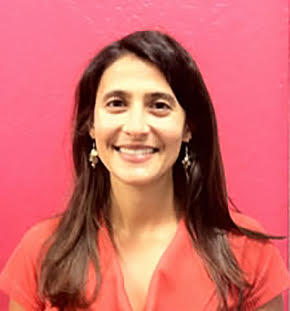Focus on a Provider: Dr. Kohar Der Simonian
“In family medicine, I can offer abortion care to a patient, deliver her baby when she’s ready, and treat her high blood pressure if she needs that. This is what primary care is.”
Kohar Der Simonian
 Dr. Kohar Der Simonian attended medical school at the University of Vermont College of Medicine, where she was first exposed to family medicine. “I liked the continuity of care in family medicine and the idea of treating people throughout their life cycles, from birth to end-of-life care.” In particular, she became interested in reproductive health within family medicine when she first began working with young women. “I realized that most young women really don’t have many health issues other than reproduction. I had the best relationship with young women, and I was well-suited to be that person to discuss birth control and reproductive health care with them. This drove me to seek out more exposure and training.”
Dr. Kohar Der Simonian attended medical school at the University of Vermont College of Medicine, where she was first exposed to family medicine. “I liked the continuity of care in family medicine and the idea of treating people throughout their life cycles, from birth to end-of-life care.” In particular, she became interested in reproductive health within family medicine when she first began working with young women. “I realized that most young women really don’t have many health issues other than reproduction. I had the best relationship with young women, and I was well-suited to be that person to discuss birth control and reproductive health care with them. This drove me to seek out more exposure and training.”
During residency at UCSF, Dr. Der Simonian performed abortions through the TEACH program, where she fell in love with the work. “The interactions that you have with the patients in that ten-minute procedure are so intense and meaningful that they totally encompass the patient-doctor relationship that I wanted.” Following residency, Dr. Der Simonian did the RHAP Reproductive Health and Advocacy Fellowship. “In residency you get so much exposure to everything, but I wanted to become an expert in abortion care—I wanted to spend that extra year learning everything that I possibly could. Without the fellowship, there’s no way I would have had any of the jobs that I’ve had since then. Not only did it give me the clinical skills I needed, but I learned to become an advocate and a teacher of reproductive health. I would have never gotten my dream job as faculty at the UCSF residency. I wouldn’t have my current job without the extra training. Not a day goes by in my regular work that I don’t think, ‘wow, I learned that in my year in New York.’”
Dr. Der Simonian recently moved to Maine, where she is currently core faculty in family medicine at Maine Medical Partners, as well as the medical director of a nearby abortion clinic. She is part of RHAP’s 2016-2017 Miscarriage Care Initiative cohort. “As I was interviewing at the residency, I realized that there was a large gap in training and provision of all reproductive health care–the residency wanted to start offering more reproductive health care, but they just didn’t have a faculty person who was able to train others. The Miscarriage Care Initiative gave us an impetus to get moving on integrating early pregnancy loss care into our residency curriculum and practice sites.”
Moving to Maine from San Francisco was a culture change for Dr. Der Simonian, and the drive behind why she’s helping co-lead the RHAP Network in Maine. “I left behind a well-organized community [in San Francisco] with like-minded people coming together to discuss cases, engage in advocacy, and keep up with current events… I do feel like there’s a lot going on in Maine, but we aren’t necessarily connected and part of that is due to the size of the state. But bringing together providers who do this work will make Maine a stronger place for patients and for other providers who want to do this work, and feel connected.” She also believes that fostering a community of providers will open up opportunities for engagement in advocacy. “I think there are always opportunities for advocacy, [but] individually people don’t realize how much they can advocate for change and get their voices heard. As physicians, we have a powerful voice when we speak and by bringing us together we can ‘rally the troops.’ Alone, it’s hard to stay on top of every measure or law that negatively affects reproductive health. Local Networks are a way to work collectively for change.”
We are so grateful for Dr. Der Simonian’s work, and feel lucky to have her as part of our extended RHAP family!
